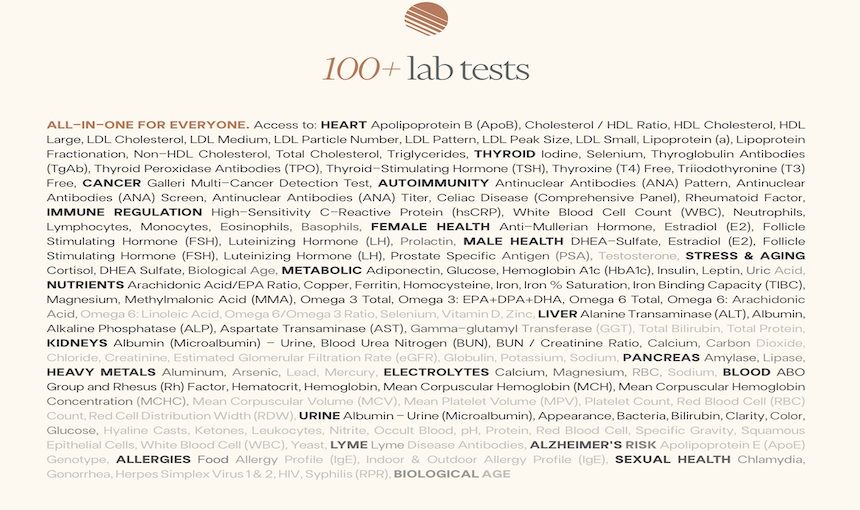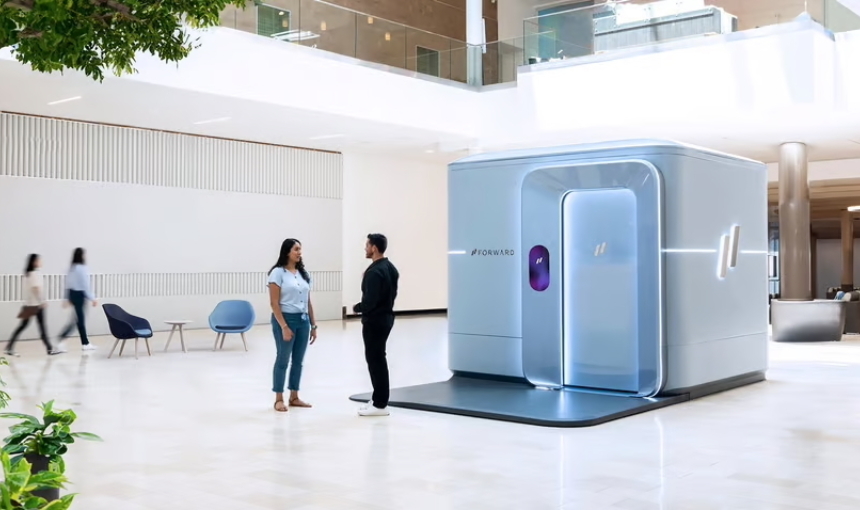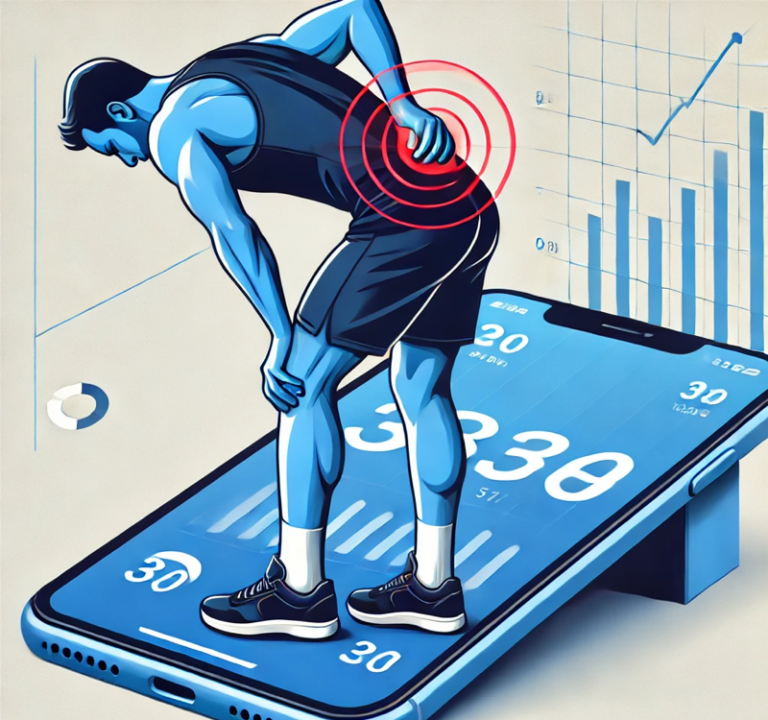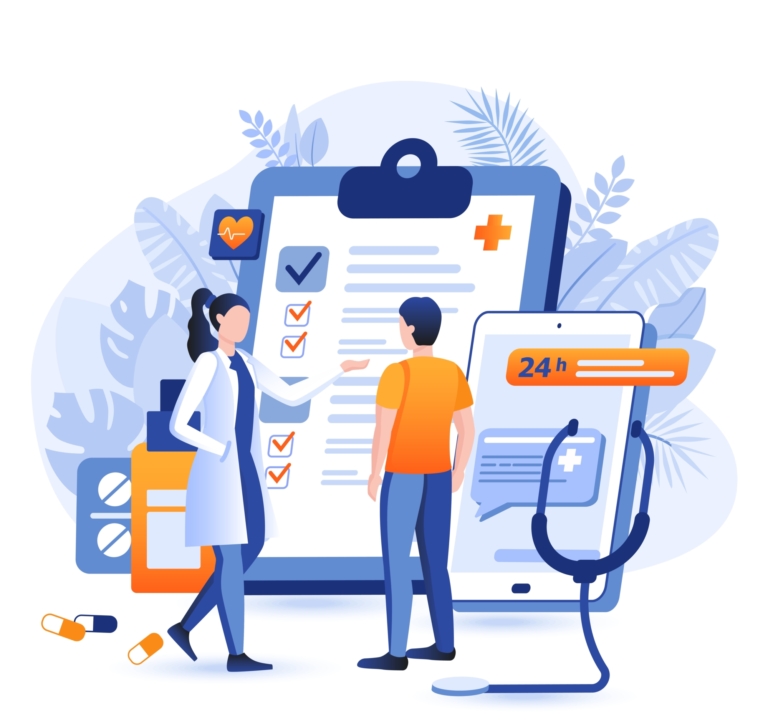CONSUMER HEALTHTECH AT A CROSSROAD
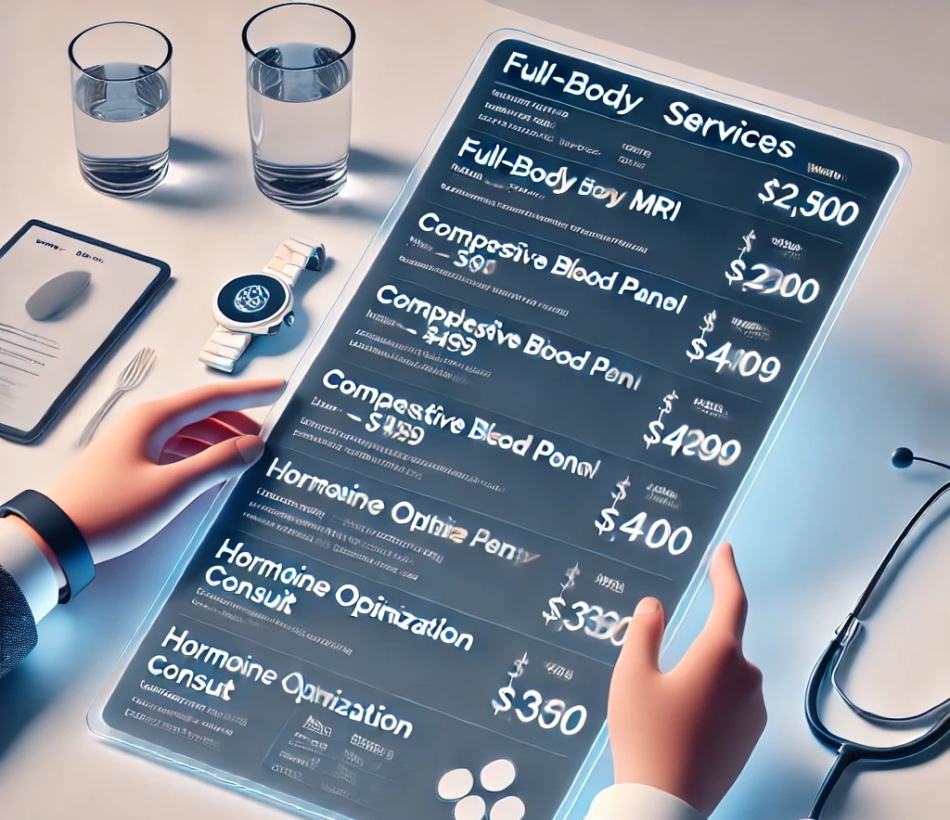
A reactive, one-size-fits-all reactive care model has left many unsatisfied and asking for more than just disease management.
In response, a wave of consumer-driven healthtech alternatives have emerged, promising personalized preventive care and empowerment.
Founders and VCs Take Notice
Traditional healthcare remains largely driven by institutional payers, often falling short of consumers’ demand – but change from the outside is coming.
Tech founders and consumer-first innovators are leading the charge.
From off-label GLP-1s and CGMs to outpatient blood panels and full-body imaging, direct-to-consumer healthtech is reshaping healthcare and patient experience.
The tailwind is real. With only 4% penetration of digital health in the $4.9T healthcare industry, there’s enormous room for growth. And consumer demand is rising: based on the premise that screening and early detection enhance healthspan, more than 60% of American consumers are willing to spend on proactive care – especially relevant given nearly 40% of diseases in the US are preventable.
And founders and investors have taken notice. Alongside booming high-end health and longevity clinics, full-body MRIs are becoming the latest status symbol. The appeal is real, and the sector is attracting major capital – attracting $32B in new capital in 2024, and poised to define wellness in 2025.
High-profile fundraising – like Neko’s $260M Series B valued at $1.8B, Function health Series B valued at $2.5B, Superpower $30M Series A, or Level Zero Health record-setting Pre-Seed round – highlight how bullish investors are on the sector.
Despite vastly different cost structures and challenges, these companies are being valued like nimble SaaS firms. Bold assumptions behind these valuations are that consumer healthtech will scale, demonstrate health and longevity benefits, and earn healthcare system buy-in – driving a shift to proactive Medicine 3.0.
Scanning the landscape
Here are segment leaders helping shape the direct-to-consumer diagnostics space.
Neko Health non-MRI full-body scan venture founded by former Spotify executives has amassed a 100K+ waitlist across its Stockholm and London clinics. In the MRI-imaging space, Prenuvo fresh off its $120M Series B round and Ahead were emerging as frontrunners.
But Function Health’s 100+ biomarker panel might now be setting the pace with its recent acquisition of Ezra – low-cost full-body MRI startup with multiple US locations. The integration positions the duo as a frontrunner in comprehensive, proactive early screening.
Competition is also heating up in blood biomarker platforms, with Superpower offering biannual testing along health concierge service, and Grail’s Galleri pioneering liquid biopsies via tumor-DNA screening.
High risk, High reward - A path forward
Not every bet in consumer healthtech has paid off.
The collapse of Theranos, abandoned Forward health pods, 23andMe demise, and the struggles of digital therapeutics platform serve as a clear reminder: momentum and high-profile celebrity backers do not compensate for fundamental flaws.
These missteps should help guide the sector beyond its premium wellness status. To truly become transformative, the sector needs to get the following things right :
1. Accessibility
DTC healthtech offering is still largely premium, typically catering to a health-literate, high-income demographic. To truly be impactful, innovations must scale and reach higher-risk, often less privileged demographics. Following Function Health x Ezra low-cost screening, Neko are also exploring more affordable options.
2. Manage expectations. Raise value
Self-diagnostic tools are powerful, but not foolproof.
Whole-body scans and comprehensive blood panels hold promise in early disease detection, but come with a trade-off – false positives. Incidental findings of harmless anomalies occur between 16% to 30% of all screenings done in primary care.
Align expectations with reality: these tools are early signals, not final diagnostics or curative endpoints. Their value depends on how people and systems respond – supporting actions within a broader ecosystem grounded in fundamental healthy living practices.
3. Turn data into direction
Consumer healthtech offers no guarantee of health(span).
Single snapshots mean little without personal baselines and ongoing tracking. In true n-of-1 Medicine, trends carry more weight than numbers.
Honest businesses should encourage repeated monitoring and follow-up plans – profitable not just in terms of revenue, but in driving real medical value.
4. Humanizing customer support
Taken in isolation, screening data can cause more confusion than direction – fueling anxiety, and unnecessary medical interventions, driving up healthcare costs.
Despite its tech-forward edge, consumer healthtech still needs a personal touch – support is what turns data into meaningful action. This means doctors and insurers must engage, first recognizing patient-sourced data and ensuring appropriate follow-up.
Right now, that buy-in is limited. Many medical associations remain cautious, advising against whole-body scans or extensive blood panels for asymptomatic patients – a position revealing both valid skepticism and unspoken reluctance to share diagnostic authority to nontraditional platforms.
Where we stand
We believe in the potential of consumer-driven healthtech to reshape preventive care and empower individuals. But bold innovation doesn’t come without friction.
Disruption in healthcare means navigating regulatory hurdles, validating new models, and demonstrating long-term ROI to overcome deep-rooted time and cost preferences.
Still, the moment is right. Consumers are ready and it’s time to act.
The next few years will determine if the bold vision delivered and if consumer healthtech will shake the pillars of Medicine 2.0.
We’ll be watching closely. You should too.
And remember: the decision to invest in proactive screening remains yours. Weigh the potential health benefits against the emotional burden of knowing – and make sure you’re ready to act.


